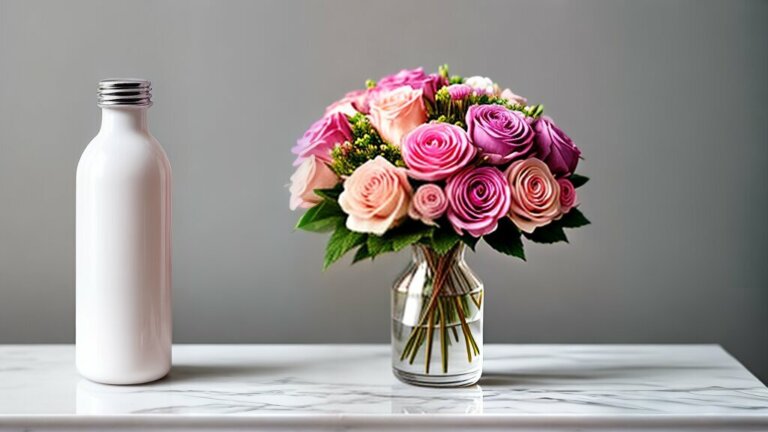Unveiling the Truth: Are Perfumes Safe for You?
Perfumes are a common part of many people’s daily routines. They are used to make us smell good and feel confident. However, have you ever stopped to consider if perfumes are safe for everyday use? When it comes to personal health matters, it’s essential to examine the potential risks associated with perfume use.
Perfumes are not just a blend of pleasant scents; they often contain synthetic fragrances, which can have potential risks. Additionally, perfumes can impact the quality of the air we breathe and cause allergies and sensitivities. In this article, we will explore the impact of perfumes on our health and examine alternative options to traditional perfumes.
Key Takeaways:
- Perfumes may contain synthetic fragrances that can pose potential risks to personal health.
- The presence of volatile organic compounds (VOCs) in perfumes can impact indoor air quality and cause indoor pollution.
- Perfume allergies and sensitivities can cause symptoms and skin reactions.
- Alternative options to traditional perfumes, such as natural perfumes and essential oils, exist.
- Mitigating risks associated with perfumes requires responsible use and making informed choices.
Understanding Perfume Ingredients
When it comes to perfume ingredients, it’s important to note that the vast majority of perfumes on the market today are made with synthetic fragrances. These chemicals are designed to mimic natural scents and provide a longer-lasting scent. However, they can come with potential risks for your health.
One potential risk of synthetic fragrances in perfumes is their potential to trigger allergies or sensitivities. Some common symptoms of perfume allergies or sensitivities include headaches, dizziness, and skin rashes. These reactions can be exacerbated by prolonged exposure to perfume, making it important to be cautious when using these products.
Additionally, some of the chemicals used in synthetic fragrances have been linked to negative health effects, such as respiratory issues and hormone disruption. While the amounts used in individual perfume products are generally low, the cumulative exposure to these chemicals can add up over time and potentially worsen these effects.
To mitigate these potential risks, some individuals opt for natural perfumes or essential oils instead of traditional perfumes. These options use natural ingredients and are generally considered to be safer for individuals with sensitivities or concerns about synthetic fragrances. However, it’s important to note that even natural ingredients can cause reactions in some individuals, so it’s still crucial to patch test and exercise caution when using any new product.
The Impact on Air Quality
Have you ever wondered about the impact of perfumes on indoor air quality? Volatile organic compounds (VOCs) are a group of chemicals found in many perfumes, and they can affect your health and indoor air quality.
| What are VOCs? | How do they affect air quality? |
|---|---|
| VOCs are chemicals that vaporize at room temperature. | When VOCs are released into the air, they can react with other pollutants to create ozone, which contributes to indoor pollution. |
This can be especially concerning for people who are sensitive to fragrance or have respiratory issues. Studies have shown that long-term exposure to VOCs can have negative health effects such as headaches, dizziness, and even cancer.
Indoor pollution can be a serious problem, as indoor air can be up to 5 times more polluted than outdoor air. So, when you use perfumes that contain VOCs, you’re contributing to the problem. However, there are steps you can take to minimize the impact on your health and indoor air quality.
- Choose perfumes that are labeled as “low VOC” or “VOC-free”.
- Avoid spraying perfumes in enclosed spaces, and try to use them in well-ventilated areas.
- Consider using natural perfumes or essential oils instead of synthetic fragrances.
By taking these steps, you can minimize your exposure to VOCs and contribute to better indoor air quality. It’s all about making informed choices and being responsible with your perfume use.
Allergies and Sensitivities
Perfumes are a common trigger for allergies and sensitivities. If you experience symptoms such as sneezing, runny nose, or headaches when exposed to fragrances, you may have a perfume allergy or sensitivity. In some cases, perfumes can also cause skin reactions such as redness, itching, or a rash.
If you suspect that you have a perfume allergy or sensitivity, it’s important to avoid perfumes and other fragranced products. Instead, opt for fragrance-free alternatives or products scented with natural ingredients.
It’s worth noting that even if you don’t have a diagnosed allergy or sensitivity, overexposure to perfumes can still cause irritation and discomfort. If you’re experiencing symptoms after using perfumes, try using them less frequently or in smaller amounts.
Regulations and Labeling
If you’re concerned about the potential risks associated with perfumes, you may wonder what regulations are in place to ensure your safety. Unfortunately, the fragrance industry is not heavily regulated, and labeling requirements can be misleading.
Perfume manufacturers are not required to disclose all of the ingredients that make up their fragrances, as well as the potential side effects. This can make it difficult for consumers to make informed decisions about the products they use.
One way to stay informed is to look for perfumes that use natural ingredients and are transparent about their labeling. Some perfume brands are also beginning to list their ingredients on their websites and product packaging, providing greater transparency for consumers who are concerned about the potential risks associated with synthetic fragrances.
Alternative Options to Traditional Perfumes
While traditional perfumes may contain potentially harmful ingredients, there are plenty of alternatives available that can still provide a pleasant scent without posing a risk to your health. Here are some options to consider:
Natural Perfumes
Natural perfumes are made with all-natural ingredients, such as essential oils and plant extracts, and are free from synthetic fragrances and other harmful chemicals. They can be a great option for those with sensitive skin or allergies, as they are less likely to cause irritation. Plus, they often come in unique and interesting scents that you won’t find in traditional perfumes.
Essential Oils
Essential oils are highly concentrated plant oils that can be used for a variety of purposes, including as a fragrance. They can be used on their own or blended together to create a custom scent. Like natural perfumes, they are free from synthetic fragrances and other harmful ingredients. They also have a variety of therapeutic benefits, such as reducing stress and promoting relaxation.
Fragrance-Free Alternatives
If you prefer to go without any scent at all, there are plenty of fragrance-free options available. Look for unscented body lotions, deodorants, and other personal care products. You can also opt for natural scents, such as the refreshing scent of peppermint, or use clothing and bedding that are washed with fragrance-free detergents.
Whatever option you choose, it’s important to remember that responsible use is key. Avoid over-applying fragrance, as this can increase your exposure to potentially harmful ingredients. Instead, use a light hand and apply fragrance to pulse points such as your wrists and neck. With these alternatives, you can enjoy a pleasant scent while still prioritizing your health.
Mitigating Risks and Responsible Use
While perfumes can be a source of pleasure and confidence, it’s important to take steps to mitigate potential risks to your health and the environment. By adopting responsible perfume use habits, you can enjoy fragrance while still making choices that prioritize your well-being and that of those around you.
Risk Mitigation: To reduce your exposure to potentially harmful ingredients, consider limiting your perfume use or choosing fragrance-free alternatives. You may also want to avoid spraying perfume directly on your skin and instead opt for applying it to your clothing or hair.
Responsible Perfume Use: When wearing perfume, be sure to use it sparingly and in appropriate settings. Avoid wearing strong fragrances in enclosed spaces, such as offices or public transportation, and be mindful of how your perfume may affect those with sensitivities. Additionally, consider choosing perfumes that use natural or organic ingredients and that are produced by companies committed to ethical and sustainable practices.
Personal Choices: Ultimately, the decision of whether and how to use perfume is up to you. By making informed choices and prioritizing your health and the well-being of those around you, you can enjoy fragrance with confidence and peace of mind.
Conclusion
After exploring the various aspects of perfume use, you may be wondering whether they are safe for everyday use. The answer is not simple, as it depends on your individual health, preferences, and habits.
While some perfume ingredients may pose potential risks, there are ways to mitigate them, such as choosing natural options or fragrance-free alternatives. It is also crucial to pay attention to labeling and regulations, and to use perfumes responsibly.
Ultimately, the decision to use perfumes is up to you. By making informed choices and prioritizing your health, you can enjoy your favorite scents while minimizing any potential risks. So go ahead, spritz on that perfume, and take a deep breath – just make sure you’re doing it safely and responsibly.
Remember, you are in control of your fragrance habits. By being aware of the impact of perfumes on your health and the environment, you can make decisions that align with your values and priorities. Stay informed, stay safe, and enjoy the scents you love.
FAQ
Q: Are perfumes safe for everyday use?
A: Perfumes can be safe for everyday use, but it’s important to consider the impact on personal health and any potential allergies or sensitivities.
Q: What ingredients are commonly found in perfumes?
A: Perfumes often contain synthetic fragrances, along with other ingredients such as alcohol, essential oils, and preservatives.
Q: Are there any potential risks associated with perfume ingredients?
A: Some perfume ingredients, particularly synthetic fragrances, can have potential risks such as allergies, skin reactions, and sensitivity for certain individuals.
Q: Can perfumes impact indoor air quality?
A: Yes, perfumes, especially those containing volatile organic compounds (VOCs), can contribute to indoor air pollution and may affect air quality in enclosed spaces.
Q: What are some common symptoms of perfume allergies and sensitivities?
A: Common symptoms of perfume allergies and sensitivities can include headaches, respiratory issues, skin irritation, and watery eyes.
Q: What are the regulations and labeling requirements for perfumes?
A: The regulations and labeling requirements for perfumes vary by country, but there is generally a lack of transparency when it comes to ingredient disclosure.
Q: Are there alternative options to traditional perfumes?
A: Yes, natural perfumes and essential oils are alternative options to traditional perfumes. Additionally, fragrance-free alternatives are available for those with sensitivities.
Q: How can I mitigate the risks associated with perfumes?
A: To mitigate risks, it’s important to use perfumes responsibly, avoid excessive use, and consider fragrance-free options if you have allergies or sensitivities.






